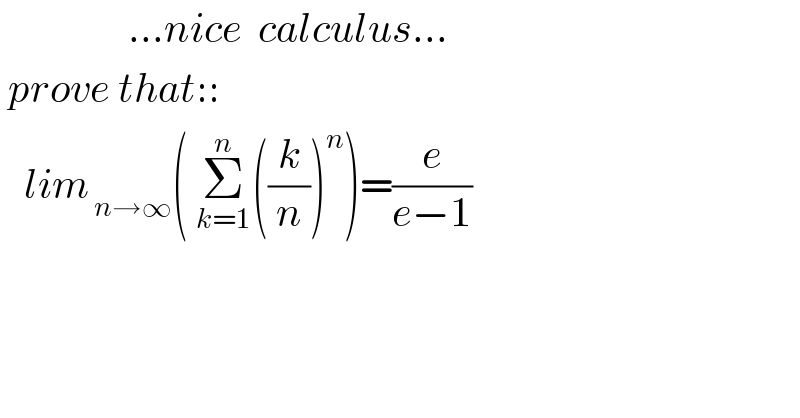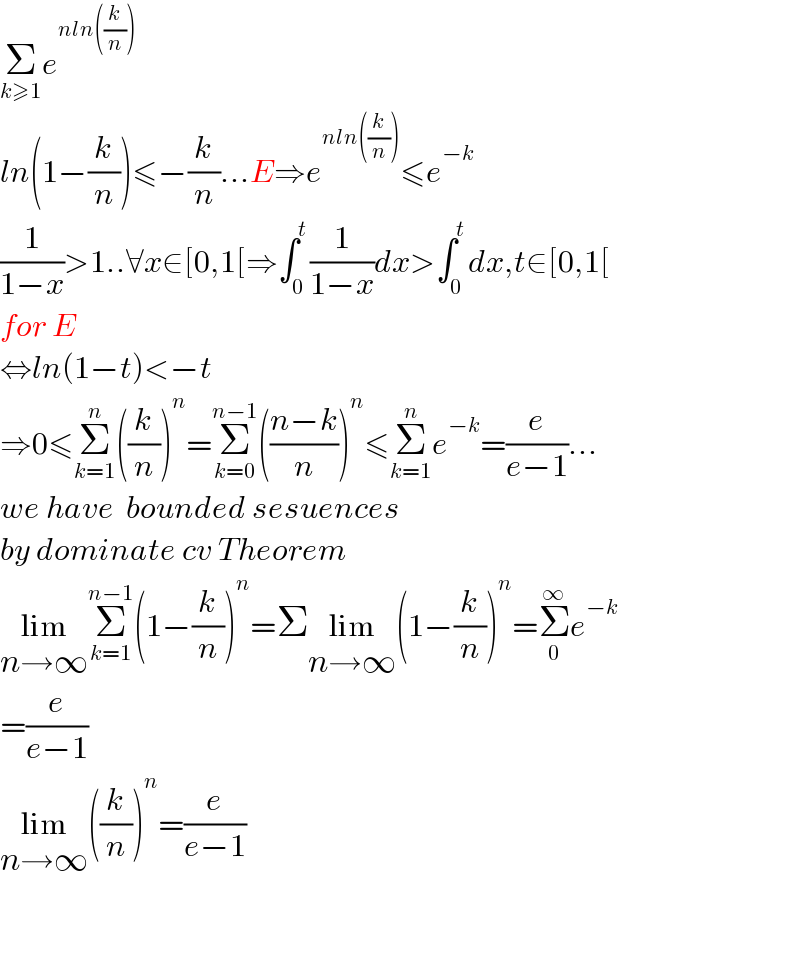
Question and Answers Forum
Question Number 127085 by mnjuly1970 last updated on 26/Dec/20

Commented by mnjuly1970 last updated on 27/Dec/20

Answered by mindispower last updated on 27/Dec/20

| ||
Question and Answers Forum | ||
Question Number 127085 by mnjuly1970 last updated on 26/Dec/20 | ||
 | ||
Commented by mnjuly1970 last updated on 27/Dec/20 | ||
 | ||
Answered by mindispower last updated on 27/Dec/20 | ||
 | ||
| ||